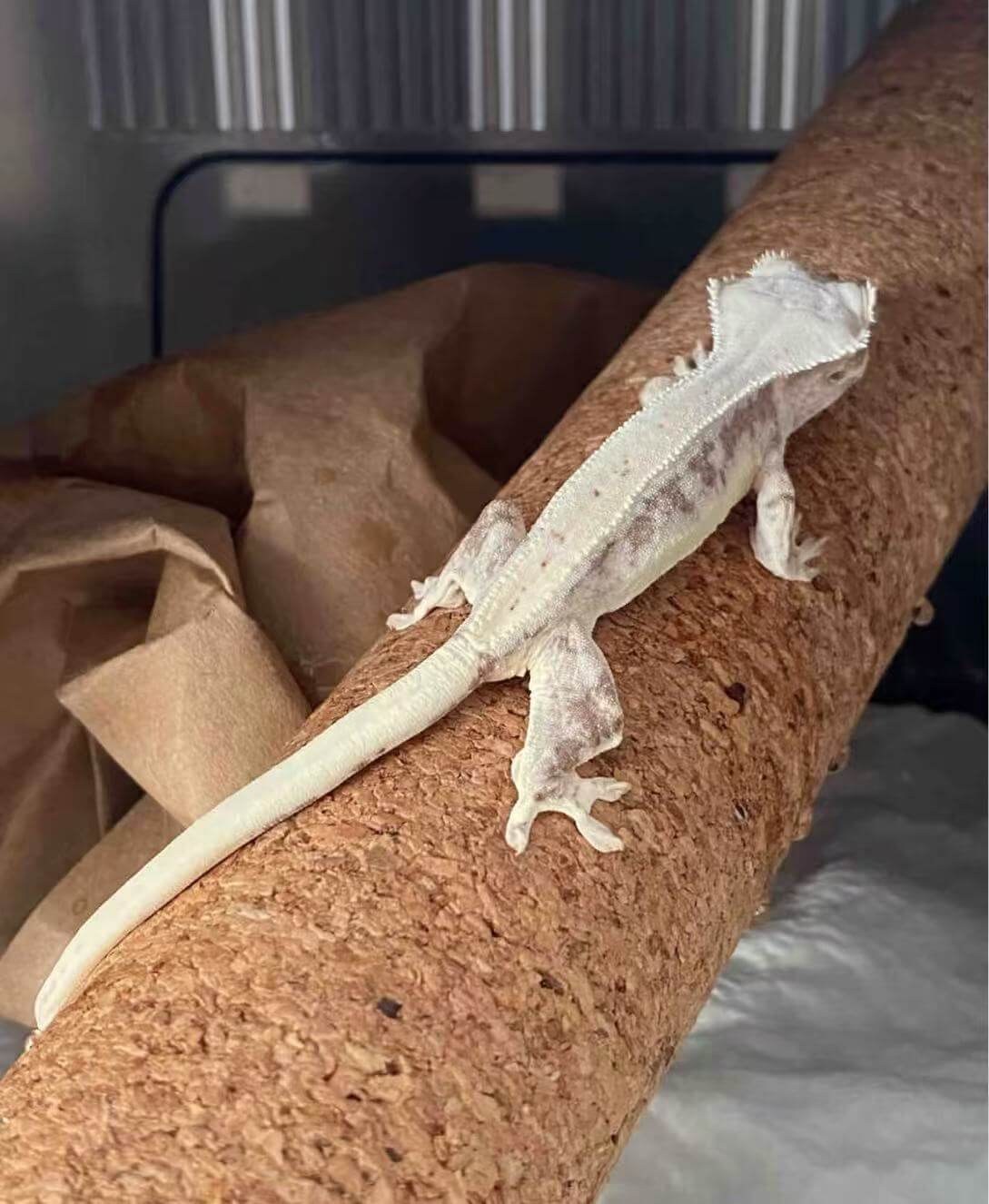
Crested Gecko Digestive Issues: Signs, Prevention & Treatment
Share
Your crested gecko’s digestive health is crucial for its well-being. Understanding the warning signs of stomach and gut problems can help prevent serious health risks. Let’s go over the key symptoms, proper feeding formulas, and how to maintain the right temperature for a healthy digestive system.
🚨 Digestive Crisis Warning Signs
1️⃣ Early Signs: Mild Digestive Issues
🔸 Loose stool + undigested fruit particles → Indicates poor digestion
2️⃣ Moderate Warning: Dehydration Risk
🔸 Refusing food for multiple days + sunken belly → Possible dehydration
3️⃣ Severe Emergency: Suspected Gut Blockage
🔸 Bloody stool or vomiting + curled body posture → Seek immediate vet care!
Fun Fact: A crested gecko’s intestines are only 1.2 times the length of its body, while a human’s are 6 times their height! This means geckos have a much shorter digestive tract, making them more sensitive to food and temperature changes.
🥣 Science-Backed Feeding Formula
Proper nutrition is key to keeping your crested gecko’s digestive system working smoothly. Here’s the ideal diet for different life stages:
🦎 Juvenile Gecko Diet (Every Other Day)
✔ 20% Fruit Puree
✔ 70% Cricket Powder
✔ 10% Calcium Powder
🦎 Adult Gecko Diet (Every Two Days)
✔ 70% Fruit Puree
✔ 20% Live Crickets
✔ 10% Calcium Powder
🌡 Temperature Control for Healthy Digestion
Maintaining the right temperature is essential for proper digestion. If it’s too cold, your gecko’s metabolism slows down, leading to gut issues.
✅ Warm Zone: 26-28°C (79-82°F) → Supports digestion without overheating
✅ Cool Zone: 22-24°C (72-75°F) → Prevents overheating and allows self-regulation
✅ Nighttime Minimum Temperature: No lower than 22°C (72°F) → Prevents digestion from stopping
⚠️ Important: Crested geckos regulate their body temperature by moving between warm and cool zones. Keeping the enclosure at a constant 30°C (86°F) is dangerous and can cause heat stress or even death. Instead, provide a temperature gradient so your gecko can find its optimal spot.
🩹 Treatment Plan for Mild Digestive Issues
If your gecko shows mild digestive problems, try these three simple steps to help it recover:
1️⃣ Fasting for 1-2 days to let the gut rest
2️⃣ Adding probiotics to restore gut bacteria
3️⃣ Slightly increasing temperature (but within safe limits) to support digestion
🔬 Probiotics for Gut Health
Probiotics help strengthen your gecko’s digestive system and prevent harmful bacteria from growing. Here’s how they work:
✔ Lactobacillus → Helps break down lactose and improve digestion
✔ Saccharomyces → Produces essential B vitamins and fights Salmonella
✔ Butyrate-Producing Bacteria → Keeps gut pH balanced at 5.5-6.0 and strengthens gut lining
Adding these probiotics to your gecko’s diet can boost digestion, prevent infections, and improve nutrient absorption!
By following these guidelines, you can keep your crested gecko’s digestive system in top shape and ensure a long, healthy life! 🦎💚

